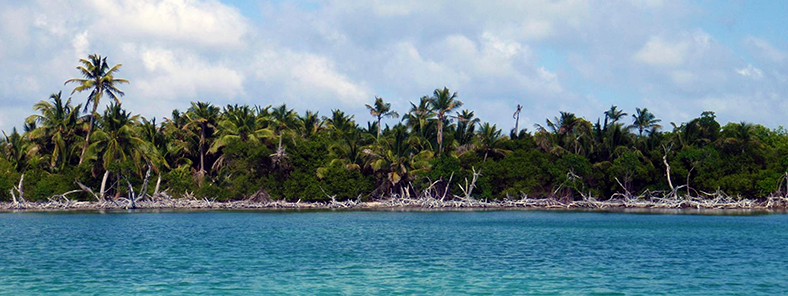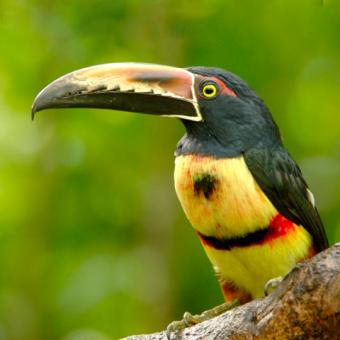Entry & Exit Requirements
U.S. citizens must have a valid passport to enter Belize. U.S. passports must be valid for the duration of your stay in Belize. As this requirement is subject to change at any time without notice, we recommend at least six months’ passport validity.
A visa is not required for visits up to 30 days.
If you are not traveling with a U.S. passport, please check with the Belizean Embassy for the requirements based on your nationality.
When leaving Belize by air, there is a departure tax of USD $55.50, which is usually included in the cost of your airfare. Consult with your airline to determine whether the departure tax is included in your ticket cost. If the departure tax is not included in your ticket cost, it should be paid at the airport prior to check-in, payable in cash only (U.S. currency). Please note exit taxes are subject to change without prior notice.
Health Information
IMMUNIZATIONS
The Centers for Disease Control recommends that all travelers be up to date on routine vaccinations such as measles-mumps-rubella (MMR) vaccine, diphtheria-pertussis-tetanus vaccine, varicella (chicken pox) vaccine, and your yearly flu shot, as well as COVID-19 vaccination, before every trip.
There are no vaccinations required for entry into Belize, unless you are traveling from (or transiting through) a country where yellow fever transmission is a risk, in which case proof of yellow fever vaccination is required.
Though not required for entry, the CDC recommends vaccination against hepatitis A, hepatitis B, and typhoid for most unvaccinated travelers visiting Belize.
Please consult your physician for additional information and recommendations based on your individual circumstances.
MALARIA
Malaria is caused by a parasite found in Anopheles mosquitos, which are active from dusk until dawn. The CDC advises that the risk of malaria in Belize is low, but travelers should still take precautions against mosquito bites. To protect against mosquitos, the CDC recommends that you cover exposed skin with lightweight, long-sleeved shirts and pants, consider treating clothes with permethrin, and use an insect repellent containing an EPA-registered active ingredient like DEET, picaridin, or oil of lemon eucalyptus (OLE). Apply sunscreen first, followed by the repellent, ideally 20 minutes later.
Be careful when applying products containing DEET, as it can damage or dissolve certain synthetic fabrics as well as plastic, rubber, vinyl, or elastic materials, such as those used in camera equipment, binoculars, phone cases, sunglasses, or watches. Additionally, some research suggests that when DEET and picaridin enter local waterways, they can be harmful to amphibians and other wildlife. When selecting a repellent, it is ultimately up to each traveler to weigh the risks and benefits of different options, keeping in mind both environmental factors and the importance of protecting against illness.
DENGUE FEVER AND OTHER INSECT-BORNE ILLNESSES
Other insect-borne illnesses are known to occur in Belize, including dengue fever, leishmaniasis, Zika virus, and others. Travelers to Belize should protect themselves against insect bites using the measures described above.
After spending time outdoors in grassy or wooded areas, the CDC recommends showering and conducting a full-body check for ticks. If you find a tick attached to your skin, safely remove it as soon as possible.
As a precaution, the CDC advises women who are pregnant to consider postponing travel to any area where Zika virus transmission is ongoing.
OTHER NUISANCE PESTS
In places with rich vegetation and proximity to bodies of water, you may encounter chiggers. These are mites that can superficially attach to skin and leave behind itchy red bumps that appear 3-6 hours after initial contact. Their bites are sometimes mistaken for those of bed bugs or other insects; however, unlike bed bugs, which tend to target exposed skin, chiggers look for skin folds or areas where clothing fits tightly—like the ankles, waist, underarms, elbow creases, and the back of the knees—to feed on broken-down skin cells. They are not known to transmit any illnesses in Belize but can cause considerable discomfort.
We recommend that travelers protect themselves against chigger bites using the measures noted above. Additionally, if potential exposure occurs, we recommend showering and scrubbing skin with soap and hot water as quickly as possible. If that is not immediately feasible, promptly rub skin with a dry towel or cloth and place any exposed clothing in a zip-top bag until it can be washed. To treat any itchiness, we suggest over-the-counter anti-itch lotion and/or oral antihistamines.
SUN EXPOSURE
The effects of the sun can be damaging to the eyes and skin. Spending time outdoors exposes you to the sun’s harmful ultraviolet (UV) rays, even on cloudy days. To protect yourself from the sun, use a broad spectrum sunscreen of at least SPF 15, protect skin with clothing, wear a wide-brimmed hat and sunglasses, and drink plenty of fluids.
If you'll be in the ocean, biodegradable/reef-safe sunscreen is required. Currently, the terms "reef-safe" and "reef-friendly" are not regulated, so it's important to check the list of ingredients. Look for a sunscreen that contains non-nano, mineral-based active ingredients like zinc oxide or titanium oxide. Avoid sunscreens that contain ingredients shown to be harmful to reefs and other environments. These include oxybenzone, octinoxate, octocrylene, homosalate, 4-methylbenzylidene camphor, PABA, parabens, triclosan, any nanoparticles or “nano-sized” zinc or titanium, or any type of microplastics (such as exfoliating beads).
Respiratory Illness Protocols
Please review our Respiratory Illness Protocols page, which explains our policy and procedures if you or another traveler should develop symptoms of a respiratory illness during your trip. Your participation in a Holbrook Travel program indicates that you are in agreement with these protocols.
Liability Waivers
Please note you may be asked locally to sign liability waivers in order to participate in certain activities. If you would like to receive a copy of any required waiver in advance, please contact Holbrook Travel.
















